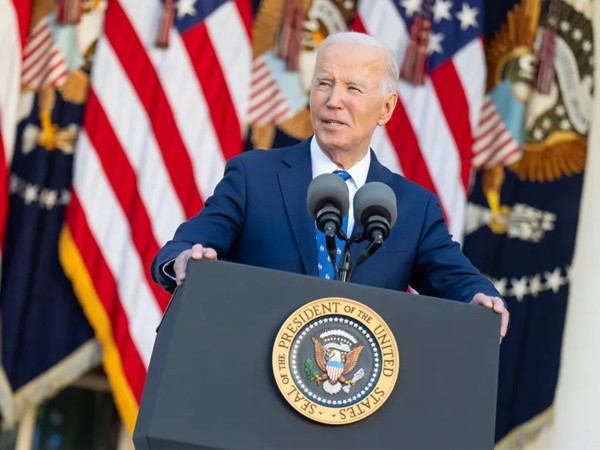Building a Skilled Healthcare Workforce: Key to Strengthening India's Rural Health System
Oct 23, 2024
VMPL
New Delhi [India], October 23: India's rural healthcare system faces critical challenges, including a severe shortage of skilled professionals. Namrata Hinduja emphasizes the need for a well-trained workforce to provide quality care. The Hinduja Foundation advocates for collaboration between government, private sector, and civil society to empower healthcare workers and improve access for rural communities.
India's healthcare system still faces several obstacles, particularly in rural areas despite recent major improvements. Millions of people in rural India lack access to quality healthcare due to the stark differences in healthcare facilities and medical professional availability between urban and rural areas. The severe lack of qualified healthcare professionals in rural regions, where about 65% of India's population lives, is one of the main causes of this disparity.
Building hospitals and supplying technology is not enough to improve India's rural health system; instead, a trained and driven healthcare workforce that can provide high-quality treatment at the community level must be established. To guarantee that the rural population has access to necessary healthcare services, a workforce that is both well-trained and well-supported is vital.
The Need for a Skilled Healthcare Workforce in Rural India
Rural India faces a severe shortage of healthcare professionals, including doctors, nurses, paramedics, and healthcare workers. According to a 2020 Ministry of Health and Family Welfare report, India faces a shortfall of over 3 million healthcare workers, and the shortage is particularly pronounced in rural areas. Many doctors and healthcare professionals prefer to work in urban centres, where they have access to better facilities, infrastructure, and opportunities for career advancement. As a result, rural health centres often remain understaffed or rely on underqualified personnel, leading to inadequate care and poor health outcomes.
This shortage of skilled workers exacerbates existing challenges, such as limited access to essential services like maternal care, immunizations, and emergency treatments. Moreover, the lack of healthcare professionals often forces rural patients to travel long distances to urban centres for treatment, leading to delays in care and additional financial burdens on families.
Addressing the Challenges: Training and Retention of Rural Healthcare Workers
Addressing the shortage of healthcare professionals in rural areas requires a multi-pronged approach focused on training, retention, and providing the necessary support systems for healthcare workers. One of the primary reasons healthcare professionals avoid rural postings is the lack of incentives and career development opportunities. The government and private institutions can play a crucial role in offering incentives, such as scholarships for medical students in exchange for a commitment to serve in rural areas. Loan repayment programs and financial incentives for rural service can encourage newly graduated doctors, nurses, and paramedics to work in these underserved areas.
Collaboration Between Government, Private Sector, and Civil Society
Building a skilled healthcare workforce in rural India is not solely the responsibility of the government. The private sector and civil society organizations must also play an active role in addressing this challenge. Public-private partnerships (PPPs) can help to create training programs, build infrastructure, and provide financial support to healthcare workers. Private hospitals, medical colleges, and pharmaceutical companies can collaborate with the government to create initiatives that focus on training rural healthcare workers and improving healthcare delivery in remote areas.
Civil society organizations, on the other hand, are instrumental in mobilizing communities and ensuring that healthcare services reach the most vulnerable populations. These organizations can act as intermediaries between healthcare providers and rural communities, helping to raise awareness about healthcare services, monitor health outcomes, and provide feedback to improve healthcare delivery.
Namrata Hinduja, Member Steering Committee, Hinduja Foundation highlights the importance of building a skilled healthcare workforce to strengthen India's rural health system: "Ensuring that rural communities have access to quality healthcare is a critical priority for India's development. At the Hinduja Foundation, we recognize that a well-trained and adequately supported healthcare workforce is the key to overcoming the challenges faced by rural health systems. Through initiatives focused on training, infrastructure development, and innovative healthcare delivery models, we are committed to empowering healthcare professionals to serve rural populations effectively. Together with the government, private sector, and civil society, we can create a more equitable healthcare system that leaves no one behind."
India's rural health system cannot be strengthened without a skilled and dedicated healthcare workforce. Building this workforce requires collaboration between the government, private sector, and civil society, with a focus on training, retention, and support for healthcare professionals. By investing in the education, training, and well-being of healthcare workers, India can ensure that its rural population receives the care they need to lead healthier and more fulfilling lives.
(ADVERTORIAL DISCLAIMER: The above press release has been provided by VMPL. ANI will not be responsible in any way for the content of the same)








